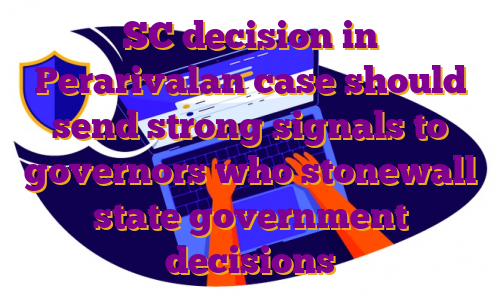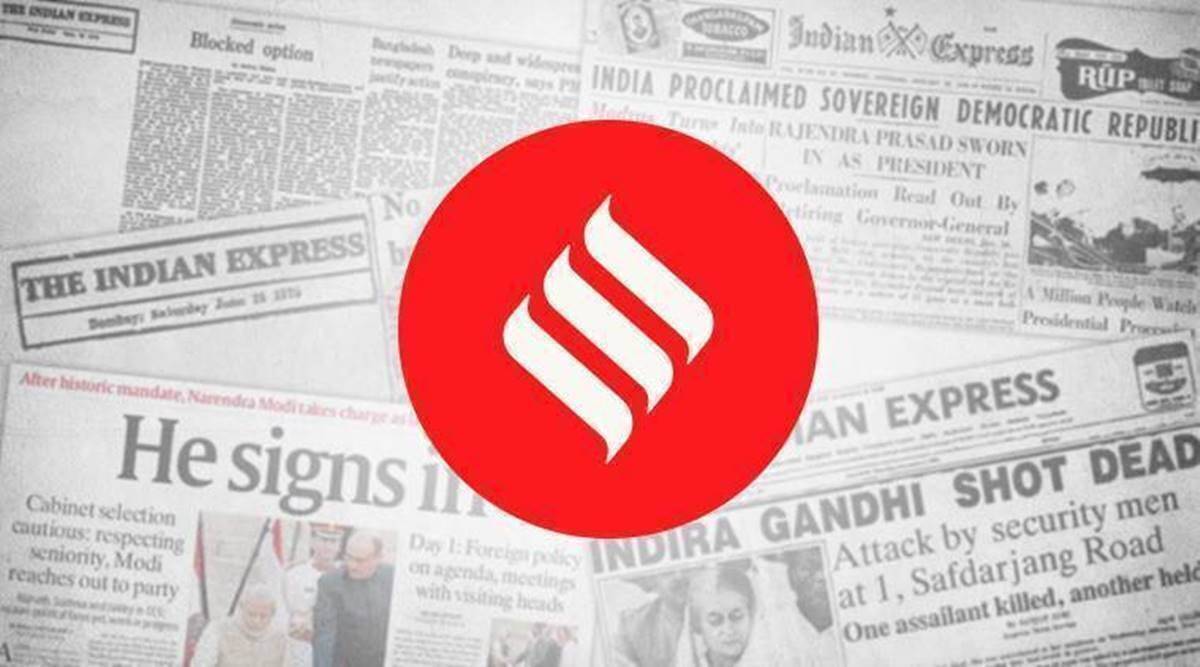On Wednesday, a three-judge bench of the Supreme Court set free A G Perarivalan bringing a closure to the more than the three-decade-long battle waged by the 50-year old convict in the Rajiv Gandhi murder case. The relief provided by the Court was long overdue — Perarivalan’s prolonged incarceration was inhuman. But the verdict is also seminal for another reason: It clarifies constitutional issues that have resulted in numerous face-offs between state governments and governors in recent times, resulting in inordinate delays in policy implementation.
Perarivalan was sentenced to death by a TADA court in 1998, a verdict upheld by the SC a year later. In 2014, the SC commuted the sentence to life imprisonment. A year later, Perarivalan submitted a plea to the Tamil Nadu governor, seeking release under Article 161 of the Constitution. When this petition fell on deaf ears, he moved the SC which, in September 2018, put the ball back in the Raj Bhavan’s court. Days after this directive, the then AIADMK government of Tamil Nadu recommended the release of all the convicts in the Rajiv Gandhi assassination case. It would be another two-and-a-half years before the governor would forward the file to President Ram Nath Kovind. During this period, the governor was called out by the state high court as well as the SC for inaction. Now, the apex court has come down strongly again on the Raj Bhavan. On Wednesday, it ruled that the state government’s advice to the governor with respect to remission pleas under Article 161 is binding and there was no need to refer the matter to the President. The vacillation over Perarivalan’s petition was, therefore, “inexplicable,” and “inexcusable,” it held.
The verdict reaffirms a cardinal principle of the country’s polity: “The Governor occupies the position of the head of the executive in the State but it is virtually the Council of Ministers in each State that carries on the executive Government.” This should send a strong signal to governors in several states who have been stonewalling state government decisions. The recent friction between the two authorities in TN over the NEET exam is a case in point. In fact, according to a report in this newspaper, at least 20 bills or state government recommendations await the TN governor’s decision, as of March end. Raj Bhavans in West Bengal and Kerala too have collided frequently with governments over policy matters. The verdict should put an end to such bickering.
!function(f,b,e,v,n,t,s)
{if(f.fbq)return;n=f.fbq=function(){n.callMethod?
n.callMethod.apply(n,arguments):n.queue.push(arguments)};
if(!f._fbq)f._fbq=n;n.push=n;n.loaded=!0;n.version=’2.0′;
n.queue=[];t=b.createElement(e);t.async=!0;
t.src=v;s=b.getElementsByTagName(e)[0];
s.parentNode.insertBefore(t,s)}(window, document,’script’,
‘https://connect.facebook.net/en_US/fbevents.js’);
fbq(‘init’, ‘444470064056909’);
fbq(‘track’, ‘PageView’);
.


